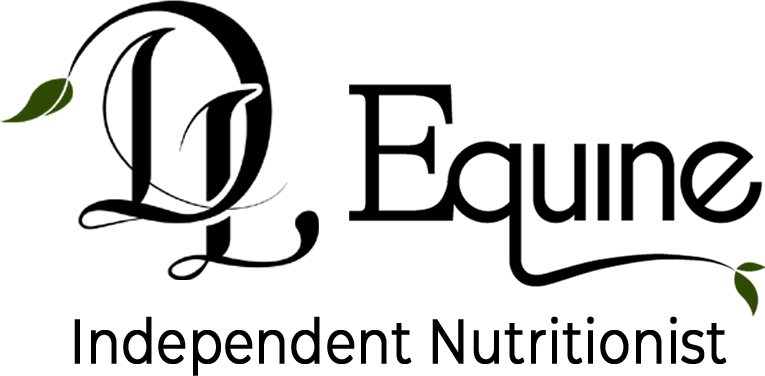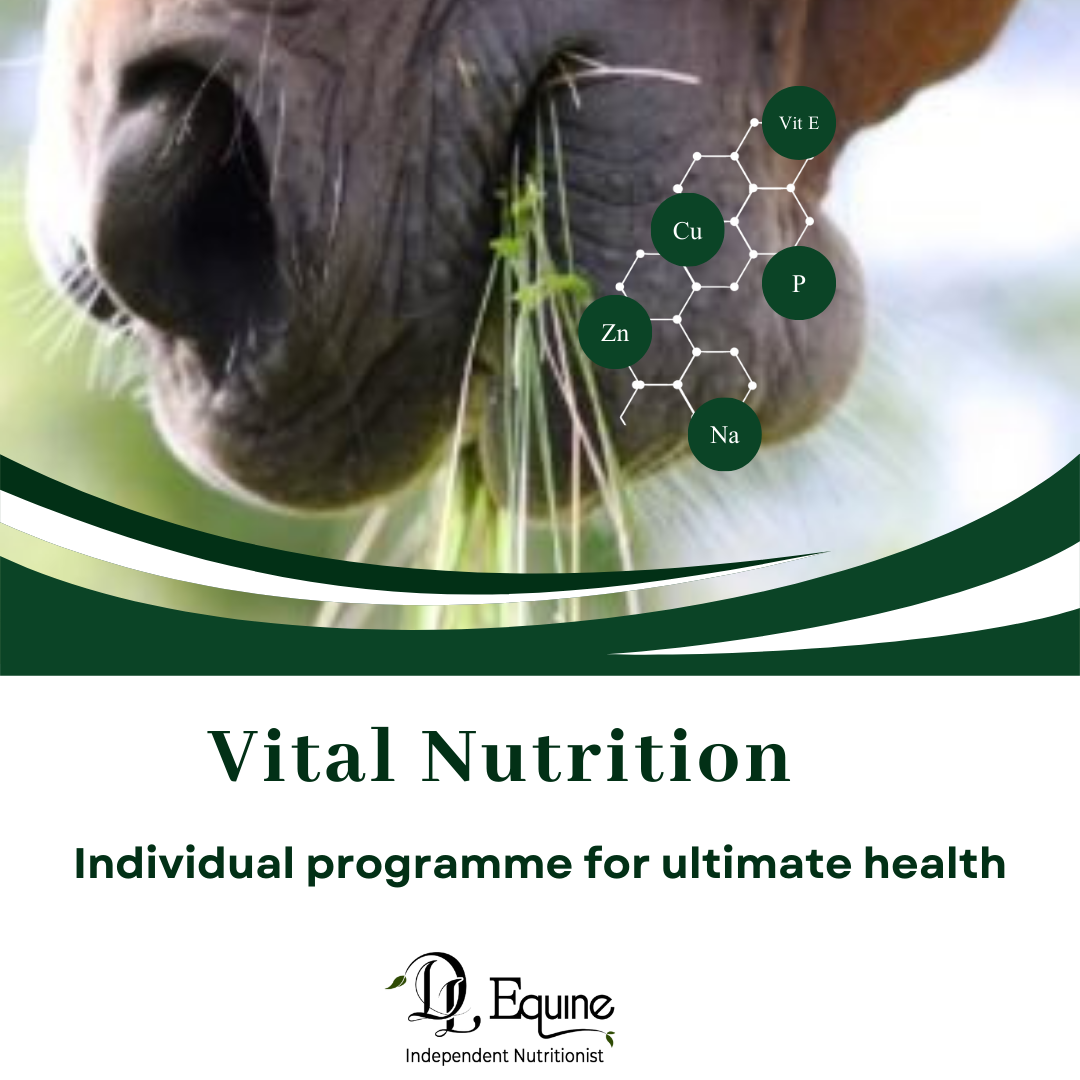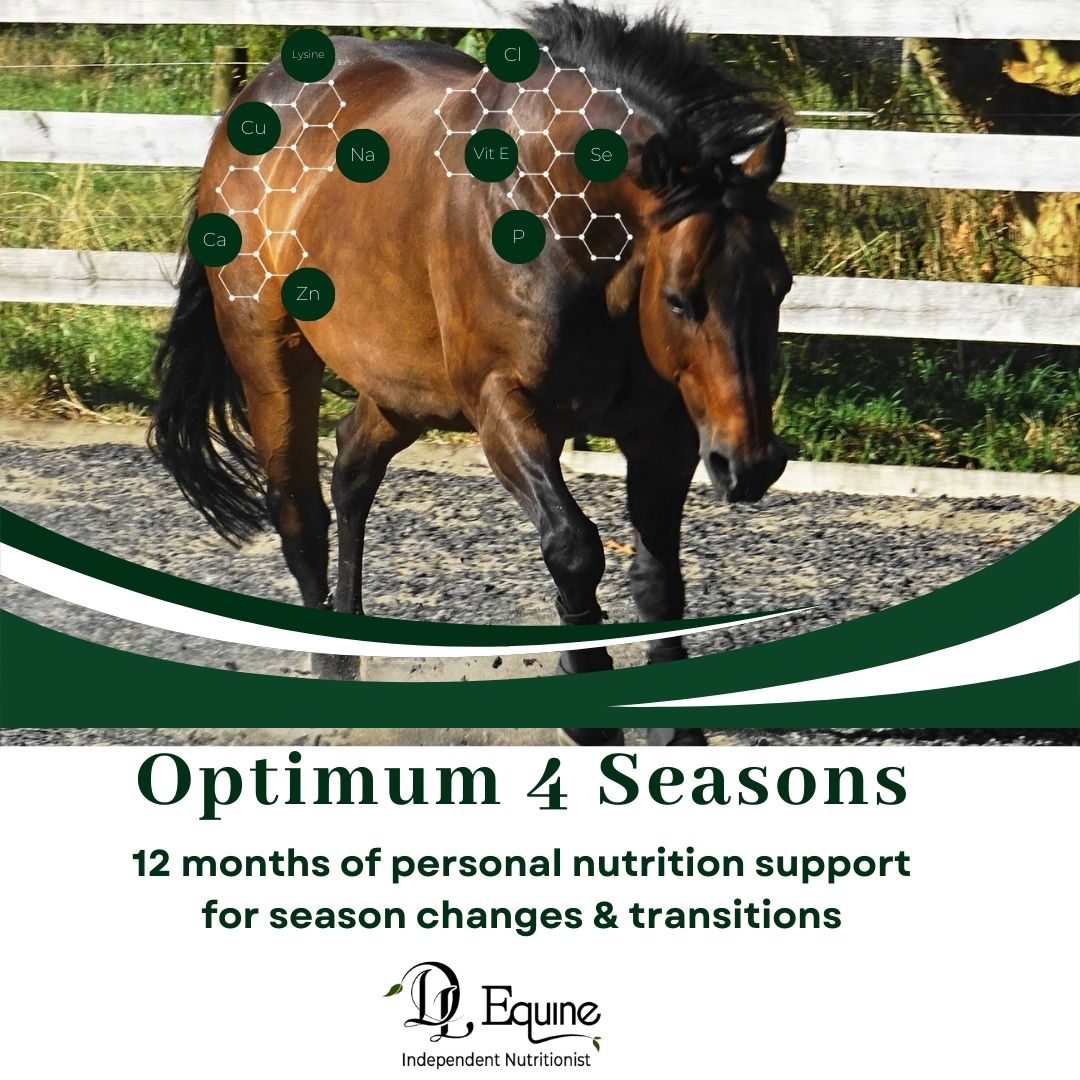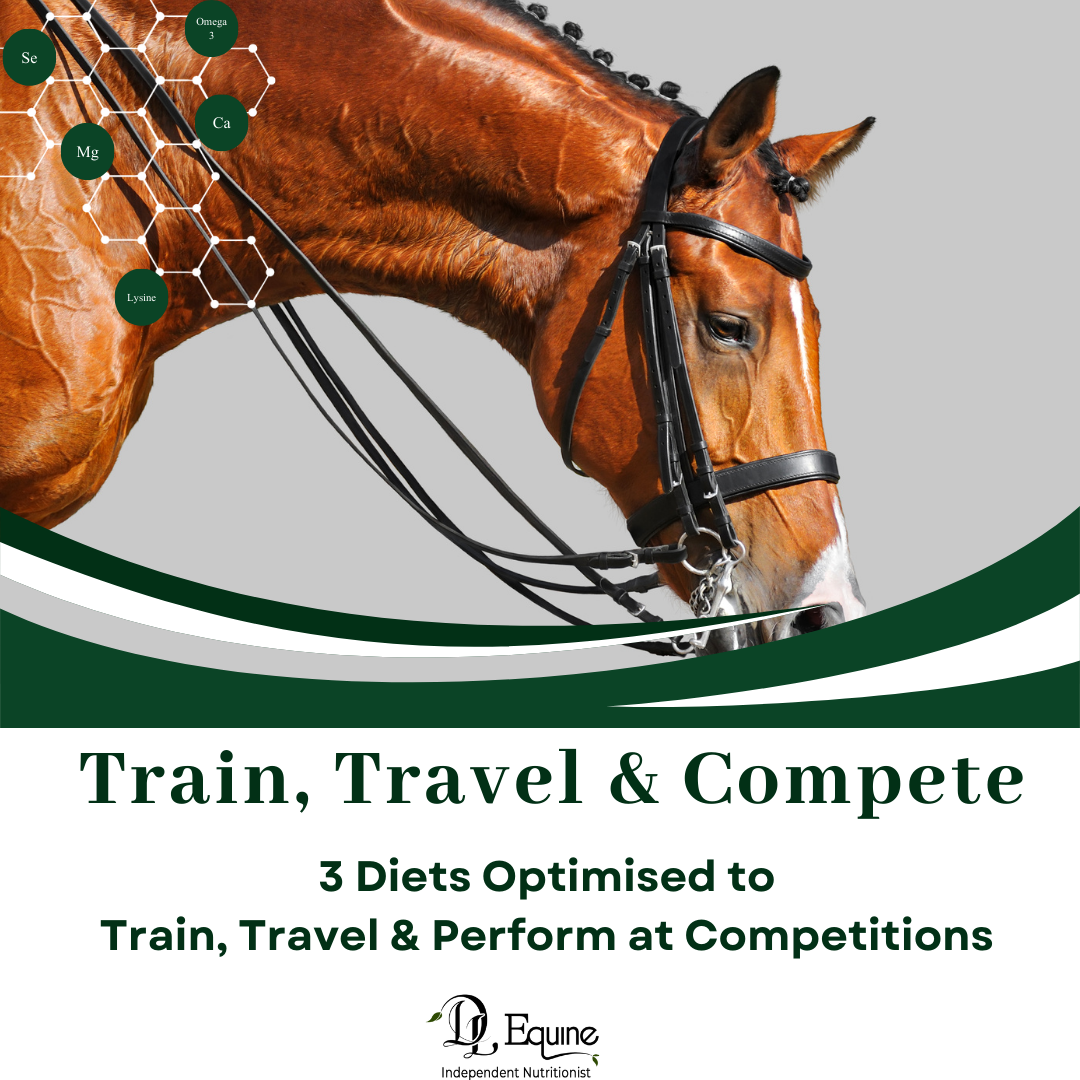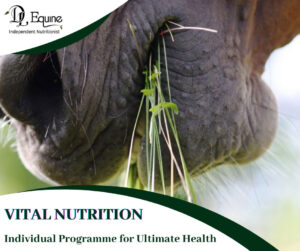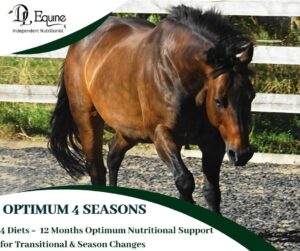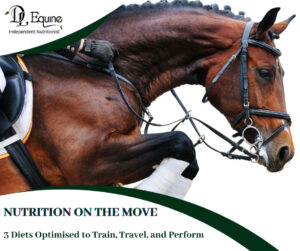There has been a number of statements made about iron and its effect on Insulin Resistance (IR) ; often people catching one sentence in an article and taken for the one and only conclusion. Yet if you are wondering about the real facts and research regarding iron and the potential issues in horses leading to laminitis, here is more food for thought.
I have gathered much information from many renown equine researchers, nutritionists and vets on the topic of iron and horses diets; addressing the question of should we be worried about high iron in horses feeding?
Lets start with what is iron?
Iron, Fe, a mineral, is so abundant in soil that the horse has evolved to ultize iron in different metabolic processes while consuming far more iron than it requires.
What does it do in the horse?
The blood, muscle and spleen together contain @ ¾ of horses body iron. It is associated with
- oxygen transport protein haemoglobin and myoglobin.
- Fe storing structures ferritin and hemosiderin
- Small fraction found in enzymes.
- Primary function is its contribution to oxygen transport.
- It is associated with the immune defence mechanisms.
The hormone hepcidin has a key role in regulation of Fe uptake and distribution.
Hepcidin is increased by high FE uptake, but also by inflammatory enzymes.
The main site for absorption of Fe is the small intestine.
Fe absorption is strictly regulated in response to intake and tissue requirements. This is influenced by the hormone hepcidin.
Basically from the pasture and hay horses are ingesting iron in a nonheme form, (ferric from) which has very low bioavailability.
Ferric iron has to be changed into ferrous iron before it can be absorbed in body by horse. When dietary iron levels are high, the transporter that helps carry and change the ferric to ferrous from becomes saturated and simply stops taking the ferric iron to be converted, it goes straight thru the body and out.
As opposed to meat Heme iron. This nonheme iron has to go thru a chemical process to be broken down and taken up by cells and then into the body. This includes an enzyme hepcidin from the liver. If there isn’t enough hepcidin, the iron from the pasture (nonheme) will just stay in the cell and eventually be lost back out of the body by the normal shedding of cells.
In summary horse doesn’t always absorb the levels that are in the pasture/feed as it is fairly well regulated.
Some research facts:
One of the equine nutrition webinars I attended virtually included speakers such as Prof. Brian Nielsen of Michigan State University, and 6 other PHD Equine researchers.
Dr Neilsen– whose research on iron in black rhinos is used as reference by other equine nutritionists and discussion of high Fe and insulin resistance.
In that rhino paper that he was the head researcher, concluding that iron overload is a major issue in captive rhinos only. – due to obesity and genetics.
His paper suggested,: IR in rhino, if shown to be present, COULD contribute to the development or iron overload disorder….
Dr Nielsen and other PHD experts went on to say that high serum ferritin concentrations are likely caused by horses being IR, as opposed to high dietary iron causing the horses to be IR.
Dr Nielsen’s recommendation (from out of that rhino paper) was to manage factors associated with the onset on IR such as obesity and limited exercise.. Hence rather than being concerned with dietary iron concentrations with horses, the prudent thing is to provide horses with adequate exercise and avoid having them become overweight.
He stated categorically that he actually wasn’t worried about a horse having high iron, as coming from the grass much of it is not bioavailable to the horse. (coming from a water source may be an issue).
Other researchers such as Dr Kellon Equine Nutritional Solutions, have seen that there may be a relationship between iron and elevated insulin levels. This does not automatically mean that high iron causes high insulin. We have to be very careful making assumptions here, the research show a correlation, not a cause and effect.
They simply don’t know yet. It could be the other way around where IR is causing elevated iron.
Another study;
Dr N Mclean, Dr N Richards and Dr B Nielsen published: 21 September 2022, also found = Dietary Iron Unlikely to Cause Insulin Resistance in Horses.
This research of was conducted on 1978 Thoroughbreds from various regions of the U.S. Where the racehorses were fed an average of 3900 mg of iron per day from hay and grain alone. This exceeds the recommendations put forth by the 2007 Horse NRC of 0.8 mg/kg BW or 400 mg for a 500 kg working horse.
Supplements increased the daily average intake by an additional 500 mg Fe.
Despite some equine nutritionists suggesting excess dietary Fe may be a contributing factor in the development of insulin resistance (IR), there was not one case of IR in any of the trainer’s Thoroughbred horses.
I want to repeat that = NO horses had Insulin Resistance.
Given the excessive iron provided to the horses in this study, it is unlikely dietary iron is an independent causative factor of IR.
There is research in the rat that showed IR rates interfered with hepcidin expression and iron was continually absorbed from the intestine, even tho body iron levels were already high, resulting in iron overload. ( Wang, H et al Diabetes May 2014. )
An important Note = these rats were made IR by being fed high fat diet, not high starch sugar diet – which is the issue with horses.
Another researcher I have actually studied a paper under, Dr B Vandergrift PHD, of Equine Consulting, University of Geulph, states that “Insulin dysregulation causes hepcidin dysregulation leading to iron overload, not the other way around. Managing iron overload in horses must be done from a medical approach as any dietary approach will be minimally effective at best.”
SO this ties in essentially with what Dr Kellons papers states about reporting higher than normal ferritin levels in horses with insulin dysregulation.
What do we know right now?
There is NO study to show feeding high iron causes IR.
Ferritin is not iron. It is a protein that binds iron and transports it to the liver for storage.
ID results in Hepcidin dysregulation, which takes up more iron into body, as more iron gets absorbed into body its stored in the ferritin molecule, and thus these ferritin protein molecules go up.
Which is why if you take a blood test of Fe levels in an ID horse you may find high levels of the protein ferritin. (not necessarily high iron).
However one take away is if your horse has IR or even dysregulation, having a diet low in iron may not be the problem or indeed make any difference.
What it may come down to is high iron being a marker of inflammation, (as Serum ferritin is also a well-known inflammatory marker,) hence the need to look after the gut cells.
As the research shows, iron overload is potentially caused by IR not the other way around.
We need more research in the actual horse 😊 We also need to take care reading research and drawing conclusions. Here the evidence directs us to high Fe due to the ID not the other way around.
However right now there is no need to panic about the high iron diets of our equines, providing your horse has a good balanced diet, and a healthy gut and immune system.
Final conclusion from the Dr Richards, Dr Nielsen and N Mclean suggests:
“Until research can determine this, greater emphasis needs to be placed on maintaining a healthy bodyweight for horses and ensuring adequate exercise to maintain insulin sensitivity.”
I hope this helps clarifies.
Research:
Kellon EM, Gustafson KF, Possible dysmetabolic hyperferritinemia in hyperinsulinemic horses. Open Vet J. 2020 Jan; 9(4): 287–293. Published online 2019 Oct 21. doi: 10.4314/ovj.v9i4.2 https://www.ncbi.nlm.nih.gov/pmc/articles/PMC6971364/#ref28
Serum ferritin is an important inflammatory disease marker, as it is mainly a leakage product from damaged cells https://pubs.rsc.org/en/Content/ArticleLanding/2014/MT/C3MT00347G
Dietary Iron Unlikely to Cause Insulin Resistance in Horses https://www.mdpi.com/2076-2615/12/19/2510/htm?fbclid=IwAR1AdaZd_GY_QSse4kxgU1K0gXWjWBpLS21LbDtGF7cuA_He3vqK26jR8h8
A POTENTIAL LINK BETWEEN INSULIN RESISTANCE AND IRON OVERLOAD DISORDER IN BROWSING RHINOCEROSES INVESTIGATED THROUGH THE USE OF AN EQUINE MODEL https://sciprofiles.com/publication/view/51fe10c8de5c728bc7ed4352989ff729
Kellon, E. Iron status of hyperinsulinemic/insulin resistant horses. Proceedings of the 3rd European Equine Health & Nutrition Congress, 2006 Mar, Ghent University, Merelbeke, Belgium.
